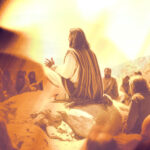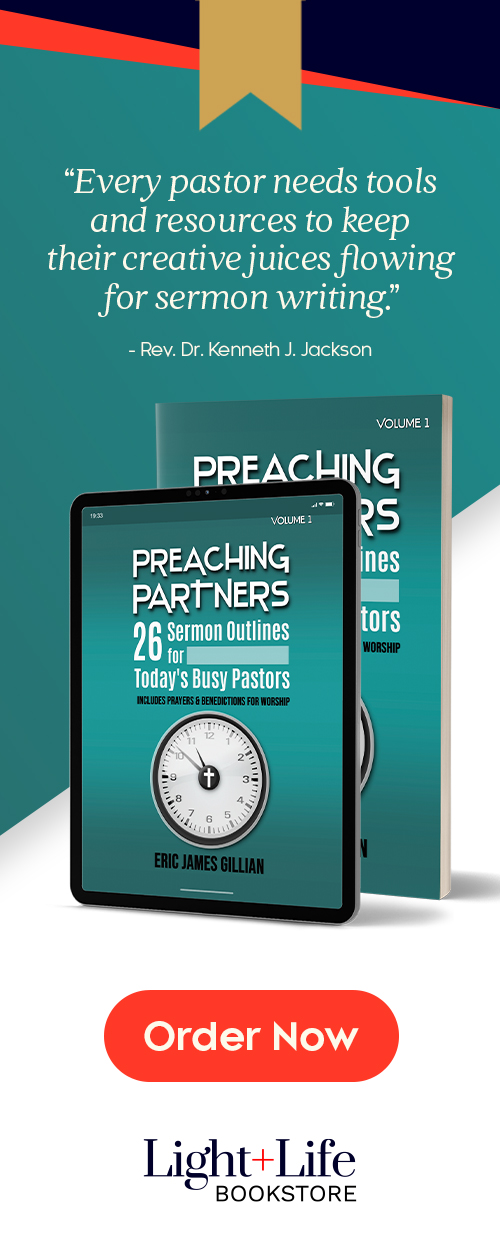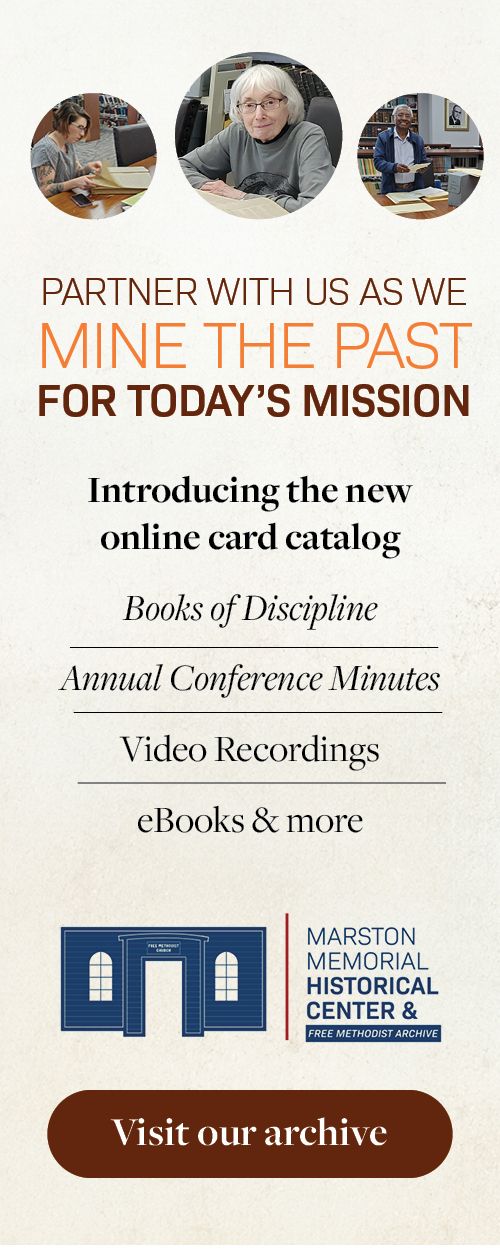
Elisée Ouoba
by Elisée Ouoba
When I was 18, I sat down one day for what was supposed to be a routine Bible reading. I was hoping to read a few chapters of the letter to the Romans and move on with my day, but I got to the second chapter and could not read past it. Instead, I found myself reading it repeatedly. I felt guilty and was soon overcome with tears as the Holy Spirit opened my eyes to things I had not realized before about myself. For the first time, I was aware of my arrogance, hypocrisy, and sense of self-righteousness. I cried, confessed my sin, and sought God’s forgiveness. The feeling of guilt was gradually replaced by a sense of peace, freedom, and joy. A deep transformation had just taken place in my heart. In the months that followed, I went from being judgmental and condemning toward others to extending grace and forgiveness to people and loving them.
Years later, as I reflected on this turning point in my spiritual journey, I was struck by the fact that my experience was triggered by a letter written 2,000 years ago to small Christian communities scattered in the city of Rome. I thought about the millions of people who have a similar experience with Scripture daily. I considered the fact that the Bible, although one of the oldest books today, is yet the most influential, the most published, and the most read book of all time. The numerous experiences of people as they encounter the Bible today raises an obvious question: How can a book so old, written over 16 centuries in times and in places so different from ours, continue to have such an impact on the lives of billions of people today?
The short answer to this question is that the Bible is a God-given book. It reveals God to us and shows us His purposes for creation. The Bible is first and foremost a story. It tells the story of the relationships between God and humanity, between human beings, and between humankind and the rest of creation. This story conveys a message of love, redemption, transformation, and hope for the world. We use the phrase “God-Given Revelation” to express at least five key truths about the Bible as a story of God and His creation.
First, the Bible is fully divine.
God did not simply create human beings. He also interacted with them, formed relationships with them, provided for them, showed them how to live in His world, rescued and forgave them when they failed, restored fellowship with them, and empowered them to live, thrive, and flourish. God created a story of His relationship with humankind and caused some people to record this divine-human narrative. God oversaw the process of writing down the events, teachings, principles, and experiences that shaped the story of His relationship with the world. God’s full involvement and active influence in producing the Bible make it a divine book. We use the term inspiration to describe the fact that God used human agents to express and record the divine-human story in the Bible. This is also what 2 Timothy 3:16 means when it states that Scripture is “God-breathed.” In the same way, 2 Peter 1:21 reminds us that people “spoke from God as they were carried along by the Holy Spirit.”
Because the Bible is divine, we cannot rely solely on our human ability to understand it. We must apply ourselves to the careful study of the Bible, using sound principles for the proper interpretation of the various literary genres we encounter in the Bible. But it is only by the work of the Holy Spirit that we can grasp more fully the depth of God’s wisdom and power as revealed in history and as recorded in the Bible. This is what the Apostle Paul affirms as he writes to the church in Corinth: “My message and my preaching were not with wise and persuasive words, but with a demonstration of the Spirit’s power, so that your faith might not rest on human wisdom, but on God’s power . . . We declare God’s wisdom, a mystery that has been hidden and that God destined for our glory before time began. … These are the things God has revealed to us by his Spirit” (1 Corinthians 2:4-10).
The Free Methodist Way claims that the Bible is the very Word of God that was communicated to us through human agents. Furthermore, we believe that the proper reading of the Bible requires that we submit to and depend upon the work of the Holy Spirit to challenge us, shape our views, and empower us to be God’s witnesses in the world.
Second, the Bible is fully human.
To say that the Bible is the very Word of God does not mean that God dictated each word of the Bible to the human writers. Despite the limitations of our humanity, God chose to work through human agents with different abilities, languages, cultures, and means of communication to write the Bible. The biblical writers displayed dissimilar personalities, belonged to different places and time periods, had unequal abilities, and experienced diverse life situations that influenced their role as mediators of God’s revelation. Yet all these writers were relaying God’s truth, will, and purposes for humanity. The Free Methodist Way acknowledges the human nature of the Bible and so commits to honor the Word of God by reading it contextually, recognizing that God chose to reveal Himself through the languages and cultures of the biblical authors in times and places that were often different from ours. We must be diligent in learning from and using the tools of modern scholarship about ancient languages, cultures, and history to understand the texts of the Bible in their original contexts.
Because the Bible is divine, it is the primary source and normative authority for the theological and doctrinal development of our faith. At the same time, we acknowledge that our God-Given Revelation, the Bible, was communicated to us in the cultural and linguistic means of its human agents. The Free Methodist Way is, therefore, to engage Scripture in light of the tradition of our movement, our individual and collective experiences of God, and the tools of human reason and modern scholarship as we reflect upon our faith, express our worship to God, and grow in our relationships with one another and the rest of the world. We believe that Jesus Christ brought us the ultimate revelation of God. Yet we recognize that the gospel of Jesus came to us through the linguistic and cultural lenses of the first century. When God became a human being in Jesus, He embraced our humanity and cultures as the vehicle for His supreme revelation. At the same time, God became a human so that He might redeem humanity and its cultures. Therefore, The Free Methodist Way also claims unequivocally that all human knowledge, cultures, sociopolitical and economic systems need the redemptive work of God in Jesus. Theologian and church historian Andrew Walls eloquently captures this truth when he speaks of the gospel as both “prisoner and liberator of culture.” We experience God and worship Him from within our social context, using the tools of our culture. Yet we do not conform to biblically questionable cultural norms and human wisdom. Rather we believe God has called us to speak His revealed truth and redemptive message to our society in a culturally sensitive and relevant manner, in faithfulness to His infinite wisdom and the prophetic power of the Holy Spirit.
Third, the Bible is a revelation.
How can we claim that the Bible is God-Given Revelation to us if it was written by human beings, with their languages and cultures serving as vehicles? Free Methodists do not claim that the truth and message of God are necessarily inaccessible to us apart from His supernatural intervention. In fact, in many ways, God’s revelation comes to us through creation. The natural world tells us about the Creator and some of His attributes. The Bible itself points to this fact (Psalm 29:4, 93:2, 104:24, 148:3-4; Acts 14:15-17, 17:24-27; Romans 1:20, 1:32, 2:15-16). This natural revelation of God also includes human conscience, as Paul writes: “Indeed, when Gentiles, who do not have the law [the Old Testament], do by nature things required by the law, they are a law for themselves, even though they do not have the law. They show that the requirements of the law are written on their hearts, their consciences also bearing witness, and their thoughts sometimes accusing them and at other times even defending them” (Romans 2:14-15).
Thus, people in all cultures know God in some fashion, but their knowledge is darkened by the sin and brokenness of our humanity. Still, however dim or small, such knowledge is reminiscent of God’s original purpose for humanity to be moral beings endowed with the power to relate to him.
Yet no experience of natural revelation or amount of human knowledge and wisdom can grasp the fullness of the wisdom and power of the redemptive work of God in Christ. As much as we value, learn from, and apply the tools of modern scholarship to study the Bible, these tools will always fall short of grasping the ultimate meaning of Scripture and the purposes of the Creator. It takes God’s special intervention to shine light in the darkness of our cultures and lives and bring redemption to a broken world. The Bible is God-Given Revelation in the sense that it is a special revelation. It describes the unique redemptive activity of God from creation to the consummation of His work of salvation.
The Free Methodist Way claims the Bible as the distinct and definitive revelation that encompasses and transcends general revelation in creation and culture. It claims that in Jesus Christ, God gave us the ultimate revelation of Himself, so much so that all human knowledge, cultures, and experience of truth in human history find their fulfillment in Christ, the cosmic determiner of reality and the measure of all knowledge, wisdom, and truth. As the Apostle Paul writes, Jesus “is the image of the invisible God, the firstborn over all creation. For in him all things were created: things in heaven and on earth, visible and invisible, whether thrones or powers or rulers or authorities; all things have been created through him and for him. … For God was pleased to have all his fullness dwell in him, and through him to reconcile to himself all things, whether things on earth or things in heaven, by making peace through his blood, shed on the cross” (Colossians 1:15-20).
Fourth, the Bible is trustworthy.
It follows from what we have discussed so far that we believe the Bible to be trustworthy. As God-Given Revelation, the Bible bears the truthfulness and reliability of the God who inspired it to the human writers. We may differ in our interpretation of specific texts of the Bible or develop different viewpoints about Scripture, but the goodness of God, His personal involvement in His creation, intimate participation in the human story, and full control of the process of writing the Bible compel us to trust the final product He has given us. This is the main reason that we turned to the Bible for guidance in matters of faith and living. For not only is all Scripture inspired by God, but it is also “useful for teaching, rebuking, correcting and training in righteousness, so that the servant of God may be thoroughly equipped for every good work” (2 Timothy 3:16-17).
The Bible is not a manual for daily life, a guide for scientific inquiry, or a manifesto for political and economic endeavors. Some people, sincerely but wrongly, have looked at the Bible as a book of “know-how,” “know-why,” “know-what,” or “know-who,” but God never intended Scripture to serve as a manual for anything. Rather He meant the Bible to provide humankind with the proper worldview to experience the world He created and flourish as individuals and communities. The Free Methodist Way looks at the Bible as God-Given Revelation that we can always trust as our primary and final source of guidance for living and witnessing to Jesus Christ in any culture, any profession, any time.
The trustworthiness of the Bible comes also from human experience with God in Scripture and throughout history as people embarked on a journey with God. Some of them remained faithful to God from start to finish; others went through times when they doubted God and questioned His character but kept going; still others walked away from God only to return to Him, persuaded as they became aware of His goodness and trustworthiness. Among them were Bible characters like Adam and Eve, Enoch, Noah, Abraham and Sarah, Isaac, Jacob, Joseph, Jochebed, Moses, Joshua, Deborah, Hannah, Samuel, David, Elijah, Isaiah, Jeremiah, Ezekiel, Daniel, Mary (mother of Jesus), John the Baptist, Mary Magdalene, Peter, John the apostle, Mary and Martha, Paul, Phoebe, Lydia, etc. The people who walked with God also include church fathers, monks and members of religious orders, the Protestant reformers, leaders of the holiness movements such as the Wesley brothers and, within the Free Methodist Church family, founder B.T. Roberts, and many others. All these people, and many more like them, belong to what Hebrews 12:1 refers to as the “great cloud of witnesses.” They have journeyed with God as they trusted the revelation He gave them, and they testify to its reliability and trustworthiness.
Thus, the Bible is not simply a collection of ancient sacred texts we revere because of its wisdom and moral principles. It is also, and most importantly, the living Word of God that has the power to create new life. As people encounter the Bible they also experience the unmatched power of the alive and active Word of God (Hebrews 4:12) that exposes our brokenness, brings healing and wholeness, and gives hope. No amount of criticism and skepticism from scientific theories, modern philosophies, or political ideologies can ever overcome the undeniable fact that billions of people throughout history have experienced radical transformation of their lives, the renewal of their hearts and minds, and hope and wholeness as a result of their encounter with the Bible. The Apostle Paul certainly has in mind this transforming power of the Bible when he writes about his desire to know Christ more and experience the power of His resurrection (Philippians 3:10). He was so convinced of this truth that he sums up the gospel as “the power of God that brings salvation to everyone who believes” (Romans 1:16). Simply put, The Free Methodist Way claims that the Bible is trustworthy because it does what it says it will do in the life of anyone who genuinely believes its message and fully submits to its authority.
Fifth, the Bible is authoritative.
The authority of the Bible derives necessarily from its inspiration and trustworthiness. The Free Methodist Way speaks of the Bible as God-Given Revelation to mean that it is the final authority for defining faith, doing theology, forming doctrines, and teaching its truth and message. Truth, knowledge, and wisdom must be discerned through tradition, reason, and experience. Science and other forms of modern scholarship also give us important insights into the world and about reality. All these are God-given tools for discerning truth. Yet we hold the Bible as the highest and final source of our knowledge of God and His purposes for humanity and the rest of creation. The Bible is the final authority because it is true and has stood the test of history.
Finally, we must remark briefly that the Bible as God-Given Revelation exerts its authority and influence beyond the communities that revere it. Throughout history, Scripture has been the source of wisdom and guidance for building nations, forming political systems, and renewing cultures. In “The Book That Made Your World: How the Bible Created the Soul of Western Civilization,” social reformer Vishal Mangalwadi examines the role of the Bible in shaping the way of life of Europe and North America as well as other countries that have adopted the values of Western civilization. Even where these societies have become secularized, the foundational values of their culture and the moral compass of their nations still reflect enduring values that are rooted in the Judeo-Christian faith.
The lasting influence of the Bible can be perceived even among subcultures that openly reject its truthfulness and authority. With the exponential growth of the number of people who have no religious affiliation, it is not uncommon to claim that we do not need a divine figure or authority to build morally sound societies and healthy communities. Many such organized communities without God have started to form all across North America and Europe (see “Grace Without God: The Search for Meaning, Purpose, and Belonging in a Secular Age” by Katherine Ozment). It is a fact, however, that all these communities exist and continue to benefit from a world and culture that have been deeply influenced by the Bible and the values of the Christian faith. We will have to wait through many generations of people attempting to build their lives without any influence of God (as if this were possible) to understand what a society that functions entirely without God might look like. The Free Methodist Way is to examine ideas, cultural systems, human experiences, and truth claims against the teaching of the Bible, God’s authoritative revelation for the flourishing of humanity.
+











Beautifully written and so true!
thank you for a very thorough and yet openly heartfelt essay on why the Bible is so powerful for our daily lives as believers and as Free Methodists